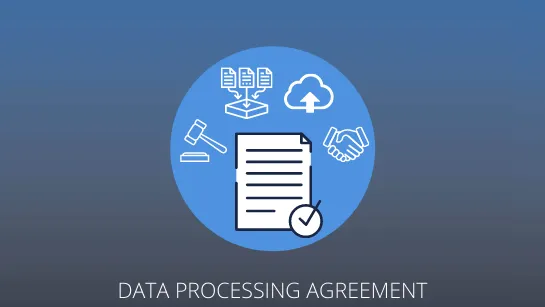Introduction
All indications are that Data Controllers are stepping back from their obligations when it comes to auditing their third party Data Processors. Organizations that handle personal data must ensure compliance with data protection regulations and standards to maintain trust and safeguard individual privacy. This responsibility extends beyond their own walls, encompassing the actions of third-party Data Processors who often play a vital role in data handling. To ensure accountability and compliance, the practice of conducting third-party Data Processor audits has gained immense importance. Failing to conduct these audits can lead to severe consequences, potentially invalidating data processing contracts and compromising data security.
The Ecosystem of Data Processing: Data Controllers and Data Processors
Before delving into the significance of third-party Data Processor audits, it’s crucial to understand the roles in the data processing ecosystem. Data Controllers are entities that determine the purposes, conditions, and means of processing personal data. Data Processors, on the other hand, are entities that process data on behalf of the Data Controller. This relationship forms the backbone of many business operations, especially in the era of cloud computing and outsourcing.
Why Third-Party Data Processor Audits Matter
- Data Protection Compliance: Data Processors are an extension of Data Controllers’ operations, making their compliance with data protection regulations equally important. Audits ensure that these processors adhere to the same standards and safeguards that Data Controllers would employ themselves.
- Risk Identification and Mitigation: Audits help identify potential risks and vulnerabilities in data processing activities carried out by third parties. This proactive approach allows Data Controllers to address these issues before they escalate into data breaches or compliance violations.
- Maintaining Trust and Reputation: Any data breach or mishandling of personal information by a third-party processor can significantly damage the reputation and trust that customers and stakeholders place in the Data Controller. Audits help prevent such incidents, demonstrating a commitment to data protection.
- Legal and Regulatory Compliance: Many data protection regulations, such as the General Data Protection Regulation (GDPR) and the California Consumer Privacy Act (CCPA), hold Data Controllers ultimately responsible for data processing activities, even if carried out by third parties. Failure to ensure compliance through audits can result in legal consequences.
Invalidation of Data Processing Contracts
The implications of not auditing third-party Data Processors can extend beyond reputational damage and legal consequences. One of the most severe outcomes is the potential invalidation of data processing contracts. Data protection regulations often require that Data Controllers have a legal basis for transferring data to third parties. When a Data Controller fails to conduct audits and ensure that their third-party processors adhere to the same data protection standards, the legal basis for data transfer and processing is undermined.
In such cases, regulatory authorities may deem the data processing contract between the Data Controller and the third-party Data Processor as insufficient to guarantee the protection of personal data. This can result in penalties, fines, and even the suspension of data processing activities until compliance is achieved.
Conclusion
The interconnectedness of data processing activities in today’s business landscape necessitates a comprehensive approach to data protection. Data Controller cannot afford to overlook the practices of their third-party Data Processors. Regular audits of these processors not only ensure compliance with data protection regulations but also safeguard the trust of customers and stakeholders. By neglecting this crucial aspect of data governance, Data Controllers risk invalidating their data processing contracts, exposing themselves to legal liabilities, and compromising the privacy of the individuals whose data they handle. In a world where data breaches and privacy concerns dominate headlines, prioritizing third-party Data Processor audits has become an indispensable practice for responsible and compliant data management.
Get your third party processing audit responsibilities into compliance with the Formiti Privacy Audit Service

